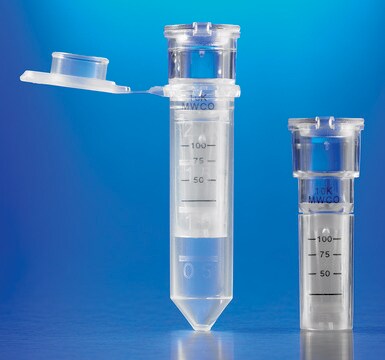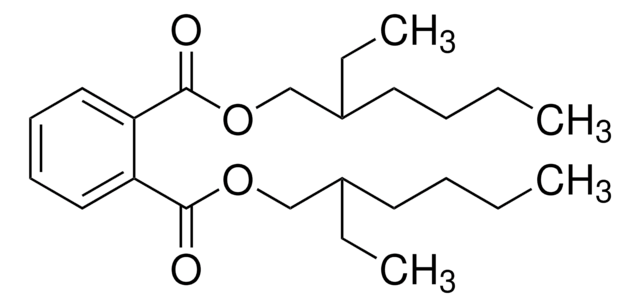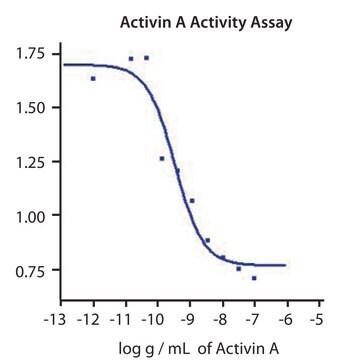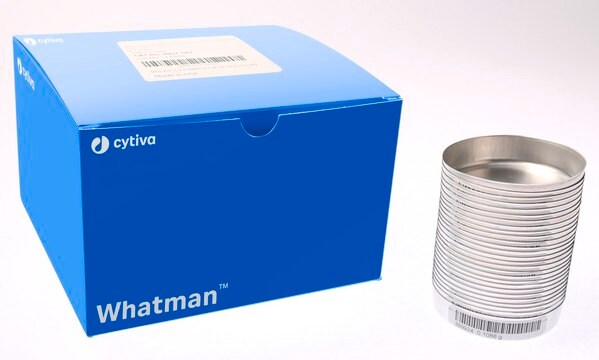A1594
Anti-Activin A antibody produced in goat
affinity isolated antibody, lyophilized powder
Sinónimos:
Activin A Antibody, Anti-Activin A antibody produced in goat
About This Item
Productos recomendados
origen biológico
goat
Nivel de calidad
recombinante
expressed in goat
conjugado
unconjugated
forma del anticuerpo
affinity isolated antibody
tipo de anticuerpo
primary antibodies
clon
polyclonal
Formulario
lyophilized powder
reactividad de especies
human
técnicas
ELISA: suitable
immunohistochemistry (formalin-fixed, paraffin-embedded sections): 5-15 μg/mL
neutralization: suitable
western blot: 0.1 μg/mL
Nº de acceso UniProt
aplicaciones
research pathology
temp. de almacenamiento
−20°C
modificación del objetivo postraduccional
unmodified
Información sobre el gen
human ... INHBA(3624)
Descripción general
Inmunógeno
Aplicación
Acciones bioquímicas o fisiológicas
Forma física
Cláusula de descargo de responsabilidad
¿No encuentra el producto adecuado?
Pruebe nuestro Herramienta de selección de productos.
Código de clase de almacenamiento
11 - Combustible Solids
Clase de riesgo para el agua (WGK)
WGK 1
Punto de inflamabilidad (°F)
Not applicable
Punto de inflamabilidad (°C)
Not applicable
Elija entre una de las versiones más recientes:
¿Ya tiene este producto?
Encuentre la documentación para los productos que ha comprado recientemente en la Biblioteca de documentos.
Nuestro equipo de científicos tiene experiencia en todas las áreas de investigación: Ciencias de la vida, Ciencia de los materiales, Síntesis química, Cromatografía, Analítica y muchas otras.
Póngase en contacto con el Servicio técnico






